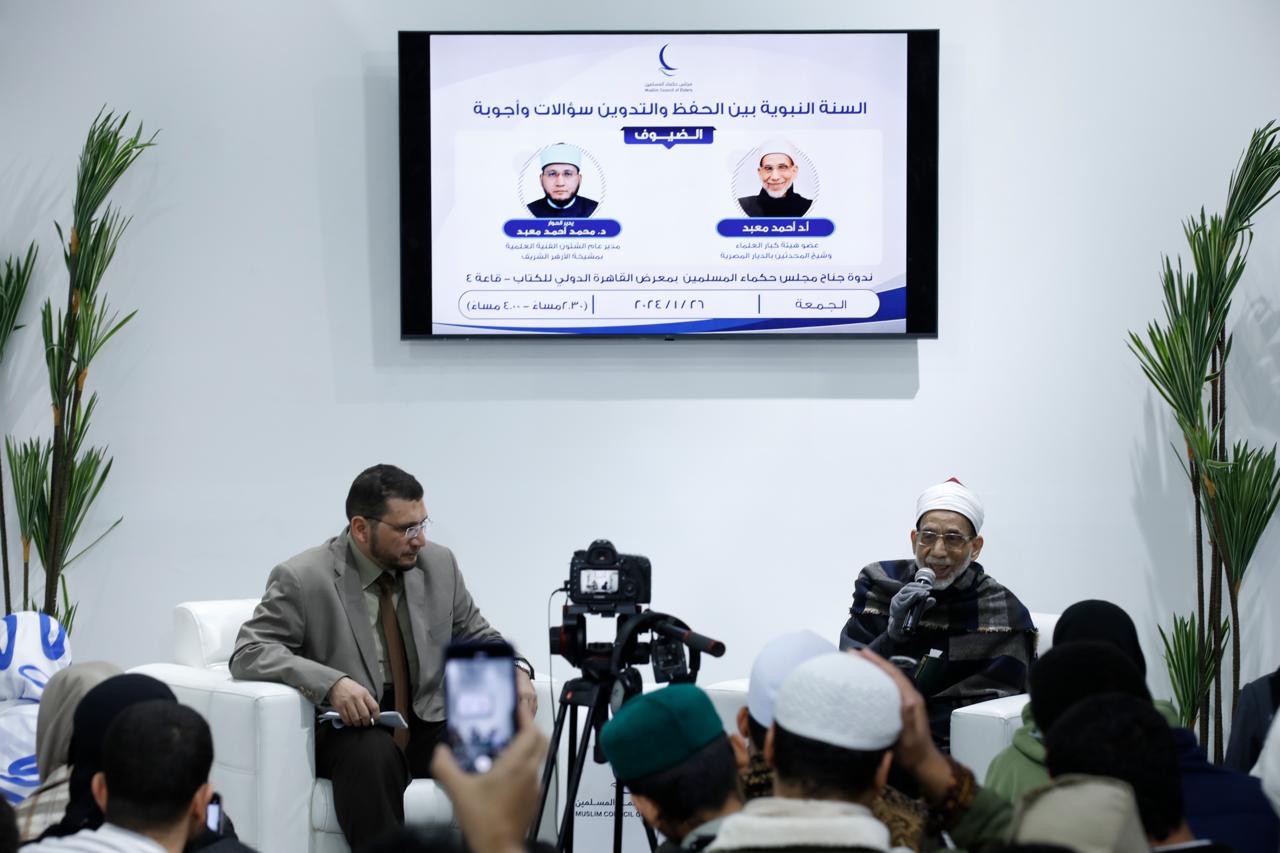In a seminar at the Muslim Council of Elders' pavilion at the Cairo International Book Fair 2024, distinguished scholar Dr. Ahmed Maabad, a member of the Council of Senior Scholars at Al-Azhar: "The Prophetic Sunnah is preserved by the protection of Allah Almighty, as outlined in the Quranic verses"
In a seminar at the Muslim Council of Elders' pavilion at the Cairo International Book Fair 2024, distinguished scholar Dr. Ahmed Maabad, a member of the Council of Senior Scholars at Al-Azhar: "The Prophetic Sunnah is preserved by the protection of Allah Almighty, as outlined in the Quranic verses"
The Muslim Council of Elders' pavilion at the Cairo International Book Fair 2024 held its second seminar titled "The Prophetic Sunnah: Between Memorization and Documentation, Questions and Answers." The seminar featured esteemed scholar Prof. Dr. Ahmed Maabad, a member of the Council of Senior Scholars at Al-Azhar, and was moderated by Dr. Mohamed Ahmed Maabad, the Director-General of Technical and Scientific Affairs at the General Secretariat of Al-Azhar.
During the seminar, Dr. Ahmed Maabad emphasized that the pure Prophetic Sunnah is preserved by the protection of Allah Almighty, as outlined in the Quranic verse: "Then upon Us is its clarification." He pointed out that the Companions and their followers used to memorize the hadiths just as they memorized the Quran. Every statement, action, or report from the Prophet was preserved in the minds of the Companions, leading to the documentation phase.
Dr. Ahmed Maabad highlighted that the Prophetic Sunnah went through multiple stages, and it is essential to differentiate between the stages of memorization, writing, and documentation. The memorization stage, which was stronger than writing during that era, facilitated the preservation of the Sunnah. He also emphasized that the memorization was a means of facilitation, not a loss.
He also pointed out that the writing of the Prophetic Sunnah began during the lifetime of the Prophet Muhammad (PBUH), who instructed his Companions to write. However, he clarified that writing did not replace memorization at that time; rather, it complemented it. Writing continued during the era of the successors of the Companions. The subsequent stage after memorization and writing was the phase of documentation, which involved organizing the Prophetic Sunnah according to topics and subjects representing creed and Islamic law, covering everything that the Prophet said, did, or reported.
The Muslim Council of Elders' pavilion at the Cairo International Book Fair features a diverse collection of publications, along with a series of seminars, activities, and events focused on promoting the values of peace and mutual coexistence among all humanity.
The pavilion is located alongside the Al-Azhar pavilion in Hall 4 at the Egypt International Exhibition and Conference Center in the Fifth Settlement in Cairo.

